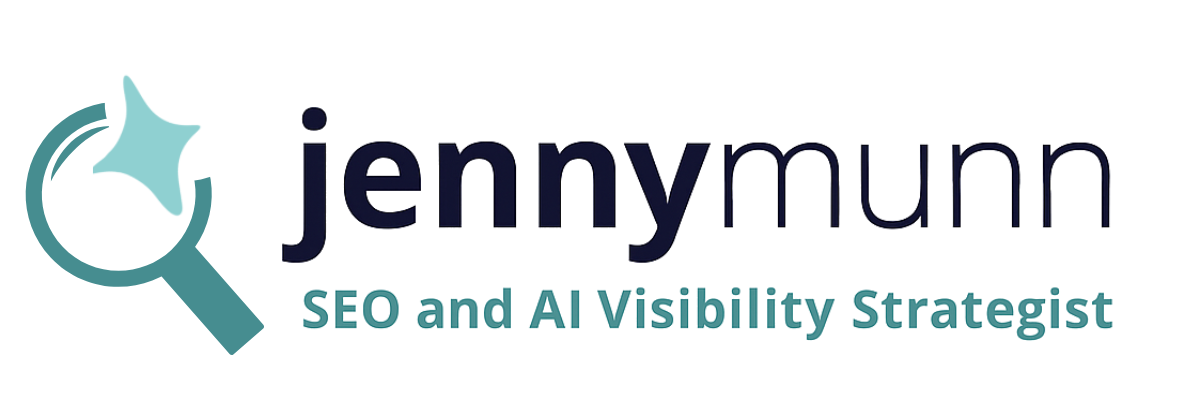TL;DR: What Does an SEO & AI Visibility Consultant Do?
- An SEO and AI Visibility Consultant is a professional who helps brands get found across search engines, social media sites, and generative AI platforms (like ChatGPT, Perplexity, Gemini, and Claude).
- Designs visibility strategies that prioritize where your most valuable, high-intent audience starts looking—not where they spend time casually scrolling.
- Combines traditional SEO expertise with modern AI visibility tactics like GEO (generative search optimization), including optimizing for entity recognition, semantic structure, brand mentions, prompt tuning, semantic structuring, and visibility in LLM platforms like ChatGPT.
- Offers relief from the pressure to “be everywhere.” Instead, we focus on being discoverable at the moments that matter most.
- Audits your current visibility, then delivers a roadmap: from on-page SEO to structured content, from prompt alignment to brand reputation building.
- Stays laser-focused on lead generation and pipeline growth—ensuring your visibility efforts translate into attracting qualified, high-intent prospects ready to convert.
The Evolution of SEO Consultant to SEO & AI Visibility Consultant
Much like one of my favorite rides at Epcot, imagine we’re on a journey through the evolution of search—ascending Spaceship Earth and watching the timeline unfold:
- 1990s–2000s: The Rise of Google — For decades, the discipline of being visible online was known as Search Engine Optimization (SEO). Because Google became the dominant player, “SEO” became shorthand for “Google optimization.”
- Late 2000s–2010s: Social Search Emerges — As social media platforms like Facebook, Twitter, Pinterest, and YouTube gained popularity, users began searching within these ecosystems. “Social search” emerged, challenging Google’s dominance.
- 2015–2020: Mobile Overtakes Desktop — With mobile usage skyrocketing, Google adopted a mobile-first indexing approach. But apps were becoming more dominant—people were searching inside Amazon, Instagram, and app ecosystems more than the traditional web. The new battleground wasn’t just search engine vs. search engine—it was Google vs. Apple.
- 2022–Today: Generative AI Takes Over — With the debut of ChatGPT in November 2022 and Microsoft’s Copilot soon after, the way people seek answers changed dramatically (and we coincidentally experienced whiplash from the skyrocketing daily advancements and changes). Now, AI tools summarize, recommend, and generate answers—no blue links required.

And here we are.
SEO Is an Incomplete Profession, Definition, Channel
In this new landscape, “SEO” feels like an incomplete descriptor. But you know what? So does “GEO” (Generative Engine Optimization). Neither term alone captures the full picture:
- It doesn’t include social search.
- It doesn’t account for branded mentions or linkless citations in generative tools.
- It doesn’t recognize the multimodal nature of how people discover, ask, and evaluate today.
So what do we call this field now—and more specifically, the people doing this work?
Like traditional SEO, it still involves a mix of disciplines and skillsets:
- Technical SEO & content structuring
- Audience behavior & keyword analysis
- PR, brand authority & visibility
- Measurement & attribution
- On-page SEO & conversion optimization
- Content development for web, search, and now AI
- Multimodal experiences across platforms, devices, and formats
It takes a modern-day conductor to keep it all in sync and who knows enough about each of these to make sur they strategically come together in beautiful harmony.
The Rise of SEO & AI Visibility Consultant
There’s no perfect title yet—but SEO & AI Visibility Consultant is the most accurate one I’ve found. Why?
- SEO: Any site with a search box can be considered a search engine. That includes Google, Bing, Pinterest, Reddit, TikTok, YouTube, Instagram, Amazon, and many more. So yes, “search engine optimization” is still relevant—but it’s not just about ranking in Google anymore.
- AI: LLMs like ChatGPT, Claude, Gemini, and Perplexity aren’t search engines in the traditional sense. They don’t return a ranked list of web pages. Instead, they generate text based on probability and pattern-matching. They don’t index content the way Google does. And they don’t cite sources consistently—though sometimes they do. Inclusion in these platforms requires a different kind of strategy: brand authority, semantic clarity, structured content, public reputation, and associations that are understood by machines.
Want to be visible, relevant, and competitive in this new world of search + AI? Let’s talk and get you set up with a smart, strategic plan.
SEO |